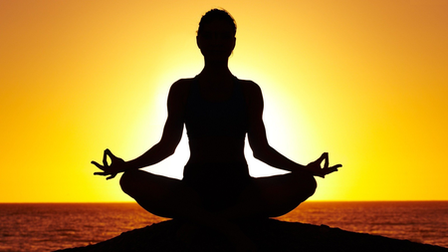New Delhi, 6 May (IANS). The ancient cultural heritage yoga of India has become synonymous with physical and mental health globally today. The meaning of ‘Yoga’ originated from the Sanskrit word ‘Yuj’ is to add, which establishes harmony between the body, the mind and the soul. In the Yogasutra of Maharishi Patanjali, it has been called ‘prevention of the circles of the mind’, which means ‘control the mind and get the state of peace and self-interview’
Yoga is not only physical exercise, but a holistic lifestyle, which is helpful in dealing with stress, diseases and challenges of modern life. This learning developed by sages and sages in ancient times has become a symbol of health and well-being globally. Experts believe that yoga not only enhances physical flexibility and strength, but also improves mental health. Various forms of yoga, such as Hatha Yoga, Raj Yoga, Bhakti Yoga, and Karma Yoga, meet different needs.
Hatha yoga focuses on physical postures (asana) and pranayama (breathing control), which makes the body flexible, strong and healthy. The words ‘Hatha’ are made up of ‘H’ (Surya) and ‘Th’ (Moon), which symbolizes the body’s energy. It is the form of yoga, which is the most popular for health and stress management in modern lifestyle. It is the coordination of asana, pranayama, currencies, which purifies the body and mind. Asanas such as Surya Namaskar, Bhujangasana, and Tadasana increase physical flexibility and muscle strength, while pranayama such as Anulom-Antonym and Kapalabhati strengthen the respiratory system.
Raj Yoga emphasizes meditation and mental discipline. ‘Raj’ means ‘superior’ yoga, controls the mind and paves the way for self-interview and inner peace. The Ashtanga Yoga described in the Yogasutra of Maharishi Patanjali is the basis of Raj Yoga, which calms the fickle of the mind through Yama, Niyam, Asana, Pranayama, Pratyahara, Dharna, Meditation and Samadhi.
The goal of Raj Yoga is to control the practices of the mind, as Patanjali said, “Yogamantantvrittinti:”. It focuses on mental and spiritual practice more than physical exercise. Through meditation, self-inspection and concentration, it liberates the person from stress, anxiety and negative thoughts. Raj Yoga is also called ‘science of soul’, which connects a person with his inner strength and high consciousness. Experts consider Raj Yoga to be a solution to the challenges of modern life. Swami Vivekananda described Raj Yoga as “the art of awakening the power of the mind”.
Bhakti Yoga is the way to connect with God through love, dedication and reverence. In the Bhagavad Gita, Bhakti Yoga is described as ‘complete dedication to God’, which purifies the mind and provides inner peace and pleasure to the person. This yoga focuses on emotional and spiritual discipline, which makes love and devotion the basis of life.
The basic element of devotional yoga is reverence and selfless love for God, Guru or high power. It is expressed through exercises like bhajan, kirtan, prayer, worship and service. In Narada Bhakti Sutra, devotion has been called ‘ultimate love’, which frees the person from ego and worldly fascination. Bhakti Yoga connects the soul to the divine through nine types of devotional paths hearing, kirtan, remembrance, Padsevan, Archana, Vandan, Dasya, Sankhya and Self -confidence. According to Sri Sri Ravi Shankar, the spiritual guru and founder of the Art of Living, “Bhakti Yoga is the power of love and dedication that makes the mind calm and heart with compassion.”
Karma Yoga focuses on selfless deeds and duty. In the Bhagavad Gita, the teaching of Karma Yoga given by Shri Krishna to Arjuna, “Karmanyevadhvad Ma Phaleshu Kadachan” (your right is only in doing karma, never in his fruits) underlines its basic principle. Karma Yoga inspires the person to discharge his duties without the desire of fruit, which makes the mind pure and life meaningful. The basis of karma yoga is to do the work as worship. It neither advises to run away from karma nor drowning in the longing of fruit. It inspires the person to see his actions as the service of society, nature and God. Swami Vivekananda described Karma Yoga as “liberation of soul through selfless work”.
-IANS
AKS/KR










